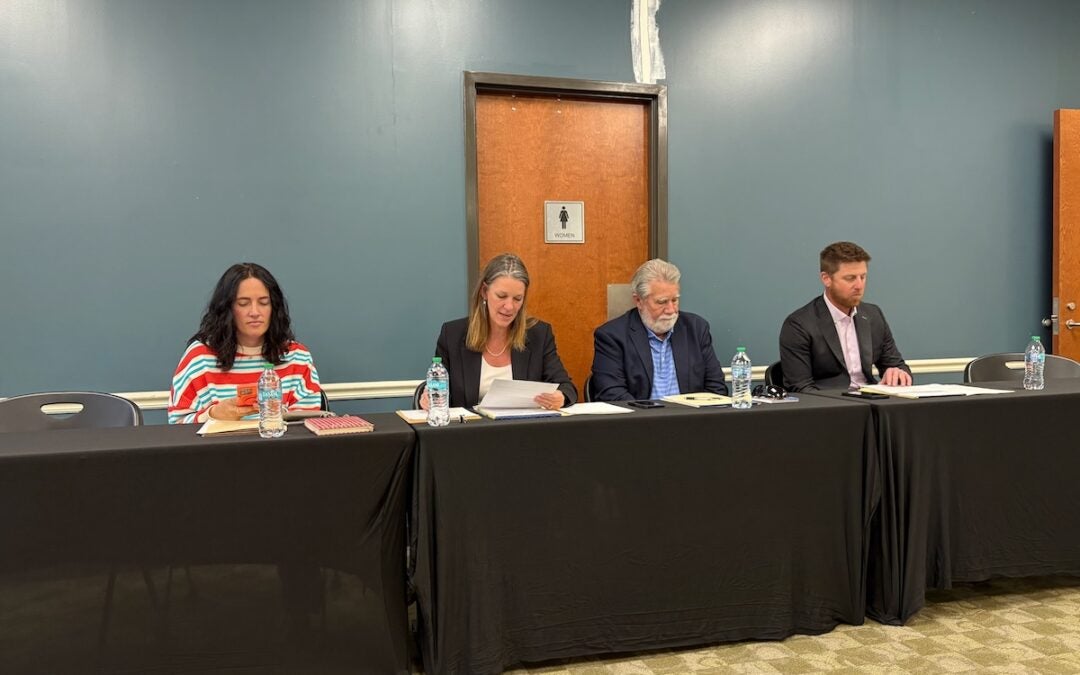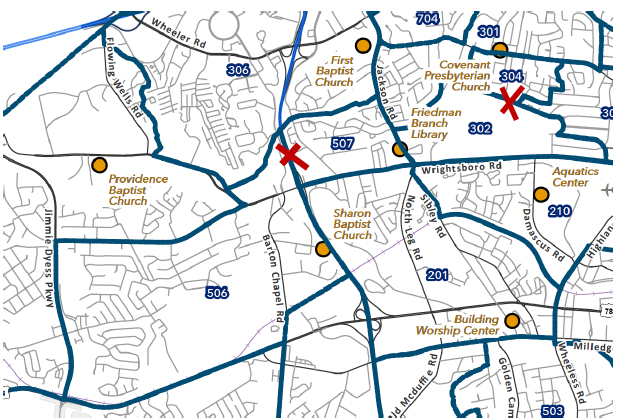When Columbia County residents take to the polls for the Nov. 4 election, they’ll have two questions to answer regarding proposals to increase the homestead exemption.
The two questions on the ballot, which are nearly identical, are for both Columbia County and Columbia Board of Education. The county question reads: “Shall the Act be approved which provides a homestead exemption from Columbia County ad valorem taxes for county purposes in the amount of $8,000.00 of the assessed value of the homestead for residents of that county?”
The school district question reads: “Shall the Act be approved which provides a homestead exemption from Columbia County school district ad valorem taxes for educational purposes in the amount of $8,000.00 of the assessed value of the homestead for residents of that school district?”
“The state has a $2,000 homestead exemption,” said County Manager Scott Johnson. “We’re going to ask the voters if they want to add an additional $8,000 homestead exemption from the county. So, you get the state’s $2,000 and you’ll get the county’s $8,000 (for a total of $10,000).”
Currently, Johnson explained that if a house is worth $100,000, the assessed value is taxed at 40%, so it would be $40,000 minus the $2,000 current exemption. With the proposed additional $8,000, the amount is now $30,000 times the millage rate to get property taxes for the county.
“Now you’re going to pay less taxes because we’re bringing the multiplier down on the value side,” Johnson said. “We did that to help combat with the rising property values in Columbia County. Everybody has seen their values go up and up and up, and even though we’re reducing the millage rate, this year we reduced the millage rate all the way to the rollback rate, we said there has to be something we can do on the other side of the equation. So, we decided to go back in and really give four times what the state is giving because they’re giving $2,000 now, we’re giving $8,000 (for $10,000 total), a larger exemption just to keep people’s property taxes down.”
Columbia County Board of Education Superintendent Dr. Steven Flynt said the school district worked with the legislative delegation to get House Bill 783, which allows for the question on the ballot, passed.
“That’s going to be a tax savings for the homeowners who have filed for a homestead exemption in the county,” Flynt said of the proposed increase.
Johnson said the commissioners came up with the proposal in response to House Bill 581, which the county and school district voted to opt-out of earlier this year.
“House Bill 581 set to cap values and in Columbia County (and) we’re such a fast growing county and our values are really going up, we decided it was in our best interest to continue to control taxes with the millage rate, not with capping values,” Johnson said. “What happens is when you cap values and there’s a 3-year lookback, so you cap it to the CPI under 581, but every three years you go back and take a look at that. What we can see in a fast growing county like Columbia County, people’s taxes could grow tremendously over that three year period and now you’re going to see a huge jump in your property taxes. So, say your house is worth $100,000 this year, in three years what if it’s worth $200,000. Now you’re paying a tremendous amount more. You didn’t pay it for those three years, but in year four you got hit with a much higher bill. What we decided we could do was, we said ok, we’re going to continue to lower the millage rate on that side, but on this side let’s address this homestead exemption. Again, the state is giving $2,000, if we give $8,000 regardless of how much your property value grows, we’re still giving you $10,000 off of that bottom line on that side of the equation.”
Both Johnson and Flynt said that a yes vote for each question would raise the exemptions for both Columbia County and Columbia County Board of Education. Because they are two separate questions, residents could vote yes to both, yes to one and no to one or no to both. If approved, the proposed increase would be effective for property taxes in 2026.
Upcoming election information
For the Nov. 4 election, advanced voting will be Oct. 14-31, Monday-Friday from 8 a.m. to 5 p.m. and on Saturday, Oct. 18 and Oct. 25 from 9 a.m. to 5 p.m. There will be two advanced voting locations, the G3 Building in Evans and the former Euchee Creek Library in Grovetown.
Election Day is Tuesday, Nov. 4 and voting will take place from 7 a.m. to 7 p.m. at the voters normal polling location. To find your polling location, visit mvp.sos.ga.gov or by calling the Columbia County Board of Elections office at 706-868-3355.
The absentee by mail application period will continue until Oct. 24 and the absentee by mail mailing period is Oct. 14-24.










